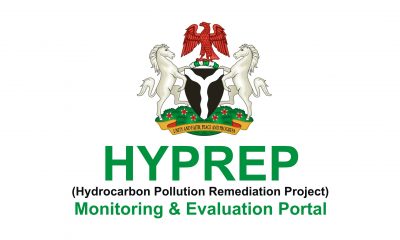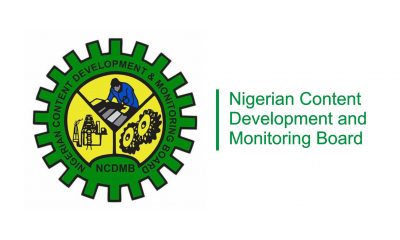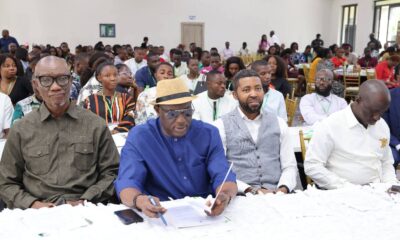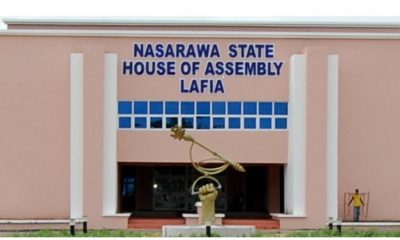Opinion
In The Slums Of Monrovia
The distance between Clara Town, the slum where George Opong Weah (ex-international footballer and Liberia’s president-elect) grew up in Monrovia, Liberia’s capital, is less than an hour’s drive to the presidential mansion. And yet, they are a world apart.
How did Mr. Weah proceed from childhood in the slums or ghettos of Monrovia to Europe’s most illustrious football pitches, and now he is set to access Liberia’s seat of power as President? So, how did the man known as “King George” to his teeming supporters contest and won Liberia’s foremost job?
He won because he is a grassroots fellow. He is a luminary; but he has the country at heart. It was his talents and tenacity which gave him a route out of Clara Town and engaged in league football in his country, Liberia.
He eventually dropped out of school to enable him ruminate on his chosen career. The decision, however, endowed him with opulence but it rebounded to haunt him very badly almost two decades later.
Weah’s life transformed when the current Arsenal football club’s coach, Arsene Wenger, spotted him playing for a team in Cameroon. The manager took him over to Europe where he played for AS Monaco, and later advanced to Paris Saint Germain, AC Milan, Chelsea, Manchester City and Olympique Marseille.
In his playing days, the global football star winnowed lots of accolades, winning FIFA World Player of the Year and Ballon d’Or in 1995, Best Europe Footballer of the Year as well as Best African Footballer of the Year/Century Awards, all in the same year.
But in the midst of the veneration, he never disremembered his country which was then deeply entrenched in a devastating civil war that claimed over 250,000 lives. He bankrolled the indigent Leone Stars, his national football team, to prosecute matches abroad and made sure they brought pride and honour to the country. These acts are still commemorated. And today, he has been recompensed.
The iconic footballer flaunted that the round leather game is first and foremost a mental contest to which physical strength is an essential complement. It is in recognition of his skills that King Pele placed him on his list of “world’s 100 greatest living players”.
His retort to “adult education” after his soccer career actively exhibited a truly motivated man who understands the value of education. After all his attainments, he humbled himself and returned to sit for his school certificate in 2006, then proceeded to seek tertiary education till he obtained a master’s degree.
I think he is probably one of the best equipped Africans for the office he has been elected into. Having been raised in a slum, he would have no extenuation if he fails to comprehend the needs of the less-privileged, and having been in the Senate, he cannot but be intimate with the workings of the legislature.
The former football icon is prepensed a man of peace and his attitude to politics is simply exemplary. In the 2005 presidential election, he was narrowly beaten by the incumbent Ellen Johnson Sirleaf, yet after the election, he maintained a non-rancorous relationship with her.
He was eventually announced the winner of Liberia’s presidential run-off recently after routing his closest rival, Vice President Joseph Boakai, in the first democratic transfer of power in decades following two devastating civil wars.
Now, the former Chelsea player is set to replace Sirleaf, who became president of Africa’s oldest republic in 2006. When the election results were declared, a highly elated Weah quickly posted the following expressions on his twitter page:
“My fellow Liberians, I deeply feel the emotion of all the nation. I measure the importance and the responsibility of the immense task which I embrace today. Change is on. The Liberian people clearly made their choice… and all together we are very confident in the result of the electoral process.”
Indeed, Liberians have spoken but George Weah must understand that his job is well cut out for him. First, he must sustain the peace which has prevailed during the years of democratic rule.
Second, he must work harder to bolster the understanding and sympathy his country has relished from the international community and explore the enormous goodwill to Liberia’s advantage.
His disparaging upbringing and eventual victory are inspiration to African youths, but let him realise that all eyes are observant on how well he will justify the obligations his electoral triumph has placed on him.
Arnold Alalibo
Opinion
Why Reduce Cut-Off Mark for C.O.E ?
Opinion
Welcome! Worthy Future For R/S
Opinion
Restoring Order, Delivering Good Governance
The political atmosphere in Rivers State has been anything but calm in 2025. Yet, a rare moment of unity was witnessed on Saturday, June 28, when Governor Siminalayi Fubara and Minister of the Federal Capital Territory, Chief Nyesom Wike, appeared side by side at the funeral of Elder Temple Omezurike Onuoha, Wike’s late uncle. What could have passed for a routine condolence visit evolved into a significant political statement—a symbolic show of reconciliation in a state bruised by deep political strife.
The funeral, attended by dignitaries from across the nation, was more than a moment of shared grief. It became the public reflection of a private peace accord reached earlier at the Presidential Villa in Abuja. There, President Bola Ahmed Tinubu brought together Governor Fubara, Minister Wike, the suspended Speaker of the Rivers State House of Assembly, Martin Amaewhule, and other lawmakers to chart a new path forward.
For Rivers people, that truce is a beacon of hope. But they are not content with photo opportunities and promises. What they demand now is the immediate lifting of the state of emergency declared in March 2025, and the unconditional reinstatement of Governor Fubara, Deputy Governor Dr. Ngozi Odu, and all suspended lawmakers. They insist on the restoration of their democratic mandate.
President Tinubu’s decision to suspend the entire structure of Rivers State’s elected leadership and appoint a sole administrator was a drastic response to a deepening political crisis. While it may have prevented a complete breakdown in governance, it also robbed the people of their voice. That silence must now end.
The administrator, retired naval chief Ibok-Ette Ibas, has managed a caretaker role. But Rivers State cannot thrive under unelected stewardship. Democracy must return—not partially, not symbolically, but fully. President Tinubu has to ensure that the people’s will, expressed through the ballot, is restored in word and deed.
Governor Fubara, who will complete his six-month suspension by September, was elected to serve the people of Rivers, not to be sidelined by political intrigues. His return should not be ceremonial. It should come with the full powers and authority vested in him by the constitution and the mandate of Rivers citizens.
The people’s frustration is understandable. At the heart of the political crisis was a power tussle between loyalists of Fubara and those of Wike. Institutions, particularly the State House of Assembly, became battlegrounds. Attempts were made to impeach Fubara. The situation deteriorated into a full-blown crisis, and governance was nearly brought to its knees.
But the tide must now turn. With the Senate’s approval of a record ?1.485 trillion budget for Rivers State for 2025, a new opportunity has emerged. This budget is not just a fiscal document—it is a blueprint for transformation, allocating ?1.077 trillion for capital projects alone. Yet, without the governor’s reinstatement, its execution remains in doubt.
It is Governor Fubara, and only him, who possesses the people’s mandate to execute this ambitious budget. It is time for him to return to duty with vigor, responsibility, and a renewed sense of urgency. The people expect delivery—on roads, hospitals, schools, and job creation.
Rivers civil servants, recovering from neglect and under appreciation, should also continue to be a top priority. Fubara should continue to ensure timely payment of salaries, address pension issues, and create a more effective, motivated public workforce. This is how governance becomes real in people’s lives.
The “Rivers First” mantra with which Fubara campaigned is now being tested. That slogan should become policy. It must inform every appointment, every contract, every budget decision, and every reform. It must reflect the needs and aspirations of the ordinary Rivers person—not political patrons or vested interests.
Beyond infrastructure and administration, political healing is essential. Governor Fubara and Minister Wike must go beyond temporary peace. They should actively unite their camps and followers to form one strong political family. The future of Rivers cannot be built on division.
Political appointments, both at the Federal and State levels, must reflect a spirit of fairness, tolerance, and inclusivity. The days of political vendettas and exclusive lists must end. Every ethnic group, every gender, and every generation must feel included in the new Rivers project.
Rivers is too diverse to be governed by one faction. Lasting peace can only be built on concessions, maturity, and equity. The people are watching to see if the peace deal will lead to deeper understanding or simply paper over cracks in an already fragile political arrangement.
Wike, now a national figure as Minister of the FCT, has a responsibility to rise above the local fray and support the development of Rivers State. His influence should bring federal attention and investment to the state, not political interference or division.
Likewise, Fubara should lead with restraint, humility, and a focus on service delivery. His return should not be marked by revenge or political purges but by inclusive leadership that welcomes even former adversaries into the process of rebuilding the state.
“The people are no longer interested in power struggles. They want light in their streets, drugs in their hospitals, teachers in their classrooms, and jobs for their children. The politics of ego and entitlement have to give way to governance with purpose.
The appearance of both leaders at the funeral was a glimpse of what unity could look like. That moment should now evolve into a movement-one that prioritizes Rivers State over every personal ambition. Let it be the beginning of true reconciliation and progress.
As September draws near, the Federal government should act decisively to end the state of emergency and reinstate all suspended officials. Rivers State must return to constitutional order and normal democratic processes. This is the minimum requirement of good governance.
The crisis in Rivers has dragged on for too long. The truce is a step forward, but much more is needed. Reinstating Governor Fubara, implementing the ?1.485 trillion budget, and uniting political factions are now the urgent tasks ahead. Rivers people have suffered enough. It is time to restore leadership, rebuild trust, and finally put Rivers first.
By: Amieyeofori Ibim
Amieyeofori Ibim is former Editor of The Tide Newspapers, political analyst and public affairs commentator
-

 Politics17 hours ago
Politics17 hours agoINEC Trains Political Parties Officials On ICNP Use Ahead By-Elections
-

 Business18 hours ago
Business18 hours agoReplace Nipa Palms With Mangroove In Ogoni, Group Urges FG, HYPREP
-

 Business15 hours ago
Business15 hours agoNCDMB, Dangote Refinery Unveil JTC On Deepening Local Content
-
Niger Delta17 hours ago
C’River Hands Over Rubber Plantation to Private Company
-

 Nation16 hours ago
Nation16 hours agoHYPREP Reaffirms Support For Ogoni Youths …Organises Workshop For Undergraduates
-

 Business18 hours ago
Business18 hours agoIndustry Leaders Defend Local Content, … Rally Behind NCDMB
-

 Politics15 hours ago
Politics15 hours agoNasarawa Speaker Advocates Conducive Executive/Legislature Relations
-
Niger Delta17 hours ago
Delta Leverages On Extensive River Networks To Drive Blue Economy

